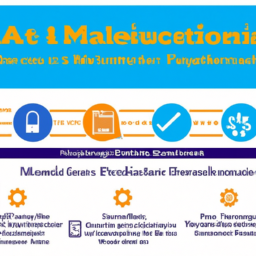The Benefits of Integrating CRM and Marketing Automation
Are you tired of spending hours manually managing your customer relationships and marketing campaigns? Well, it’s time to take advantage of the powerful combination of CRM (Customer Relationship Management) and marketing automation. Integrating these two systems can revolutionize your business and help you streamline your processes, drive more sales, and deliver personalized experiences to your customers. Let’s dive into the advantages of integrating CRM with marketing automation.
1. Better alignment between sales and marketing
One of the biggest benefits of integrating CRM and marketing automation is the improved alignment between your sales and marketing teams. By synchronizing these systems, you create a seamless flow of data, enabling both teams to have a clearer understanding of each customer’s journey. Marketing automation platforms can track prospect activities and engagements, giving sales reps valuable insights into their leads’ interests and behavior. This alignment helps your sales team close deals more effectively and allows your marketing team to enhance their strategies based on real-time data.
2. Enhanced lead generation and nurturing
Integrating CRM with marketing automation enables you to generate and nurture leads more effectively. With automation tools, you can create personalized, targeted campaigns tailored to each individual’s preferences and behaviors. By analyzing a lead’s activities and interactions, marketing automation can automatically trigger relevant and timely communications. This personalized approach leads to higher engagement rates, better relationships with leads, and ultimately, more qualified sales leads.
3. Improved customer segmentation and targeting
Segmentation is a fundamental component of effective marketing. By integrating CRM with marketing automation, you can leverage your CRM data to create highly targeted segments and deliver personalized messages to the right audience. Having access to comprehensive customer data allows you to segment your audience based on demographics, behaviors, purchase history, and other criteria. This precision targeting helps you deliver the right message to the right people at the right time, greatly increasing the chances of conversion.
4. Streamlined data management and reporting
When your CRM and marketing automation systems work in harmony, you eliminate manual data entry and inconsistencies between the two. Data synchronization ensures that the information in both systems is up-to-date and accurate. This automation not only saves you time but also allows for more reliable reporting and analysis. You can easily track the success of your marketing campaigns, measure ROI, and make data-driven decisions to optimize your sales and marketing strategies.
5. Increased customer satisfaction and loyalty
Integrating CRM with marketing automation allows you to deliver personalized experiences throughout the customer journey. By collecting and analyzing customer data, you can provide tailored content, offers, and interactions that resonate with each individual. This level of personalization not only drives higher customer satisfaction but also builds loyalty. Customers appreciate receiving relevant, timely, and valuable information, which ultimately leads to stronger brand advocacy and increased customer retention.
In conclusion, the integration of CRM and marketing automation brings numerous benefits to businesses of all sizes. From aligning sales and marketing teams to improving lead generation and nurturing, enhancing customer segmentation and targeting, streamlining data management and reporting, to increasing customer satisfaction and loyalty, the advantages are undeniable. So, if you’re ready to take your business to the next level, it’s time to consider integrating CRM and marketing automation.











